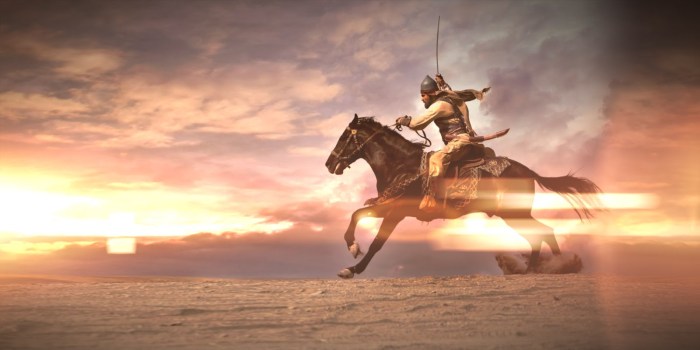Embark on an enlightening journey as we delve into the intriguing realm of “Certain Follower of Mohammed Crossword.” This enigmatic puzzle beckons us to explore the depths of Islamic history and unravel the significance of a pivotal figure in the spread of Islam.
Within this discourse, we shall traverse the historical landscape that shaped Mohammed’s life and teachings, deciphering the beliefs and practices that guided the nascent Muslim community. Moreover, we shall illuminate the pivotal role of Mohammed’s followers in disseminating the message of Islam, leaving an enduring imprint on the world.
Mohammed and the Early Islamic Community: Certain Follower Of Mohammed Crossword
The emergence of Islam in the 7th century CE marked a significant turning point in the history of the Arabian Peninsula and beyond. At the heart of this new faith was the teachings of Muhammad, a prophet who proclaimed the revelation of God’s word.
Muhammad’s teachings emphasized monotheism, the belief in one God, Allah. He called upon his followers to abandon idolatry and live a life of righteousness, justice, and compassion. The early Muslim community, known as the Ummah, was founded on the principles of brotherhood, equality, and social welfare.
Beliefs and Practices of the Early Muslim Community
The beliefs and practices of the early Muslim community were centered around the Five Pillars of Islam, which formed the core of their religious and spiritual lives. These pillars included:
- Declaration of Faith (Shahada)
- Prayer (Salat)
- Fasting (Sawm)
- Alms-giving (Zakat)
- Pilgrimage to Mecca (Hajj)
These practices fostered a sense of unity and belonging among the Ummah, strengthening their collective identity.
Role of Muhammad’s Followers in Spreading Islam
Muhammad’s followers played a crucial role in the spread of Islam beyond the Arabian Peninsula. Through trade, missionary work, and military conquest, they carried the message of Islam to distant lands. The rapid expansion of the Islamic empire in the centuries following Muhammad’s death was largely due to the efforts of his devoted followers.
The Quran and the Sunnah

The Quran, considered the holy book of Islam, is believed to be the direct revelation of God’s word to Muhammad. It is the primary source of guidance for Muslims, providing religious teachings, moral principles, and legal guidelines.
The Sunnah, on the other hand, refers to the collection of Muhammad’s teachings and actions. It is a vital source of Islamic law and ethics, complementing the Quran and providing practical guidance for everyday life.
Importance of the Quran and the Sunnah
The Quran and the Sunnah hold immense significance in the lives of Muslims. They provide the foundation for their beliefs, practices, and social conduct. By adhering to these texts, Muslims strive to live a life in accordance with God’s will.
The Five Pillars of Islam

The Five Pillars of Islam, as mentioned earlier, are the fundamental religious practices that form the backbone of Muslim life.
- Declaration of Faith (Shahada):Proclaiming the belief in one God (Allah) and Muhammad as his prophet.
- Prayer (Salat):Performing five daily prayers facing the direction of Mecca.
- Fasting (Sawm):Abstaining from food and drink during the month of Ramadan.
- Alms-giving (Zakat):Giving a portion of one’s wealth to the needy.
- Pilgrimage to Mecca (Hajj):A pilgrimage to the holy city of Mecca at least once in a lifetime.
These pillars are not merely rituals but embody the core principles of Islam, fostering spiritual growth, social solidarity, and moral discipline.
The Spread of Islam
The spread of Islam from its origins in the Arabian Peninsula was a remarkable historical phenomenon. Within a few centuries, the Islamic empire had expanded to encompass vast territories across Asia, Africa, and Europe.
Factors Contributing to the Rapid Growth of the Islamic Empire
Several factors contributed to the rapid growth of the Islamic empire:
- Military Conquests:The Muslim armies, inspired by the teachings of Islam, embarked on a series of conquests that brought vast territories under their control.
- Political Unity:The establishment of the Caliphate, a central authority led by the caliph, provided political stability and unity, facilitating the expansion of the empire.
- Economic Prosperity:The Islamic empire fostered economic prosperity through trade and commerce, attracting people from diverse backgrounds.
- Religious Tolerance:While Islam was the dominant religion, the Islamic empire generally tolerated other religions, allowing for peaceful coexistence and cultural exchange.
The expansion of the Islamic empire had a profound impact on the cultures and societies of the regions it conquered, leading to the development of new languages, artistic traditions, and intellectual achievements.
The Role of Women in Islam

The role of women in Islam has been a subject of much debate and discussion throughout history. While the Quran and the Sunnah provide guidelines for women’s conduct, the interpretation of these texts has varied widely.
Status and Rights of Women in Early Islamic Society, Certain follower of mohammed crossword
In early Islamic society, women had certain rights and responsibilities:
- Legal Rights:Women had the right to own property, inherit wealth, and seek education.
- Social Roles:Women were primarily responsible for domestic duties, but they also participated in religious, economic, and social activities.
- Religious Obligations:Women were expected to follow the same religious obligations as men, including prayer, fasting, and pilgrimage.
However, it is important to note that the treatment of women in Islamic societies has varied greatly over time and across different cultures.
Contemporary Islam

Islam today is a diverse and vibrant religion, with adherents from a wide range of cultural and ethnic backgrounds. It is the second-largest religion in the world, with over 1.8 billion followers.
Major Branches and Sects of Islam
There are two main branches of Islam:
- Sunni Islam:The largest branch, representing about 85-90% of Muslims worldwide.
- Shi’a Islam:A smaller branch, representing about 10-15% of Muslims worldwide.
Within these branches, there are numerous sects and schools of thought, each with its own unique interpretations of Islamic teachings.
Challenges and Opportunities Facing Muslims in the Modern World
Muslims in the modern world face a variety of challenges and opportunities:
- Integration and Identity:Balancing Islamic values with the norms and expectations of modern society.
- Islamophobia:Prejudice and discrimination against Muslims, often rooted in fear and misunderstanding.
- Religious Extremism:The rise of extremist ideologies that distort Islamic teachings and promote violence.
- Technological Advancements:The impact of new technologies on Islamic practices and religious life.
Despite these challenges, Muslims also have opportunities to contribute to the global community through interfaith dialogue, peacebuilding, and the promotion of human rights.
FAQ Compilation
Who was the first follower of Mohammed?
Abu Bakr
What is the significance of the Five Pillars of Islam?
They represent the core practices and beliefs of Islam, providing a framework for daily life and spiritual growth.
How did Islam spread so rapidly?
A combination of military conquests, trade, and missionary activities contributed to the rapid expansion of Islam.